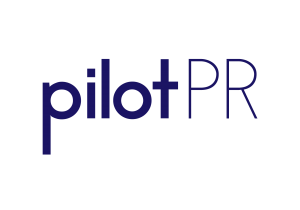With a good portion of us in lockdown right now, many of us are managing its mental and physical impacts. If you’re a business leader, you’ll be leading a team remotely and responsible for keeping team morale buoyant. Your business might be impacted directly by lockdowns, so you’re navigating new ways to keep your company on track, overcome the challenges and come out the other side. You might be reimagining your offering as COVID and lockdowns have forced an exciting time of innovation on you and your business. Or, you might be a managing director or GM who also has the responsibility of homeschooling your children while you lead your team and your business and making sure everyone – at home and at work – are happy (including you!).
We already know that great change brings innovation and impacts our perspective on what’s important to us. According to McKinsey, our innovation during this crisis is what will lead us to growth afterwards.
One development you may be considering on the other side of lockdown is building your reputation as a strategy to speed up your business’s growth or establish it as a leader in your industry (or both). Many leaders are time poor, so when you’re starting out on something like this, time can be an obstacle that means many people leave it on their to do list for months or years, knowing they need to get to it but prioritising their work in the business rather than on it.
So, after a time when for many leaders your load has never been bigger, how can you start building your reputation without feeling like you’re adding to your load or adding your potential to burn out? The short answer is: you can.
Here are three ‘actionable today’ tips so you can start building your reputation without hitting the wall or creating a schedule that’s unsustainable and you leave dormant within six months.
1. Pick one platform
Before you even start building your reputation, many of us compare ourselves to the ubiquitous business leaders who have made it their business to build their reputations in alignment with the companies they lead. Bill Gates. Warren Buffett. Arianna Huffington. Richard Branson. Martin Sorrell. Mark Ritson. Mia Freedman.
The problem with this is that you’re overwhelmed before you’re even started and these people are visible on every platform possible, so you think you need to be too. Not the case! To get started and not overload yourself in the first few months, all you need to do is pick one platform. Probably social, but it can also be the media if that’s where you want to focus your efforts (though option one will get you option two faster, but that’s another post). Pick LinkedIn, Twitter, Facebook, Instagram, Clubhouse depending on where your audience is, tidy up your profile and start thinking about how you can start to be more visible there.
2. Pick one form of content
Now you’ve picked your platform, pick one form of content you’re going to start posting or sharing there. The leaders who are active on the platform you’ve chosen probably post and share a variety of content – articles, video, news stories, events, day in the life of content and you might think you should be too, but you don’t have to!
Pick one form of content. Seeing as we’re emerging from a time when your load has probably never been bigger, make it easy. For what we’re talking about here, I’m going to choose content curation. Which is simply you sharing the business content you’re reading on that platform together with an insight from you. It’s fast once you do a few and find your style. It adds value to your audience so they don’t have to search for insightful articles themselves, it shows the level of information you’re consuming to stay current on industry issues and trends, and it’s a good way to ease into things so you start to feel comfortable with posting rather than just liking and commenting.
Another tip: when you read something you’d like to share, you don’t have to post it then and there. Write the post for it then post it at a time that suits you. This way, if you bank your reading and read three great articles in one day you can space them out over say a week.
3. Evaluate your progress in 8-weeks
As you start to be visible with the one form of content you’ve chosen, you’ll find you’re more comfortable in being present on your platform in other ways. You’ll comment more on other people’s posts. You’ll pay attention to what other leaders who are building their reputation are doing and reflect on whether it is something you want to incorporate when you’re ready to advance.
You might not need eight weeks, but if you give yourself that time to get into the swing you take the pressure off and make sure it’s effortless and sustainable before you take the next step to being more visible. You also give yourself permission to choose what’s right for you – a blog might be next, or getting onto some podcasts as a guest, a regular column with an industry title, or being on a panel and you’ll do it well when the time is right.
Whatever our life situation is, no matter the size, structure or challenges of our businesses, we have all been impacted by COVID and rolling lockdowns. We are almost at the end of them, but as we emerge and recover from the mental load of taking on these challenges and we can refocus on building businesses rather than sustaining them, you can build your reputation so it’s enjoyable for you. You can use it as a tool to overcome and grow your business to be stronger than it was almost two years ago when coronavirus was a term used in science and medical circles to describe the common cold rather than the global vernacular we have heard every day for more than 18 months.
Start with one thing. Align it to who you are as a person and a leader. Make it easy. Get comfortable being visible and making it a priority for your business. And build it out from there when it suits you.



